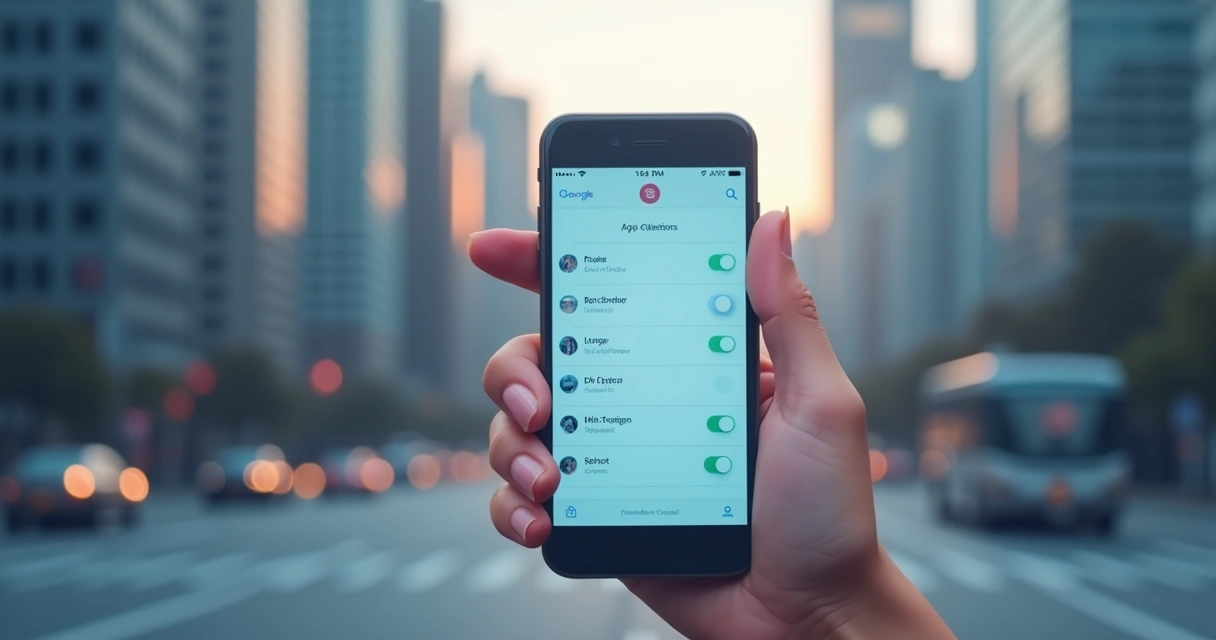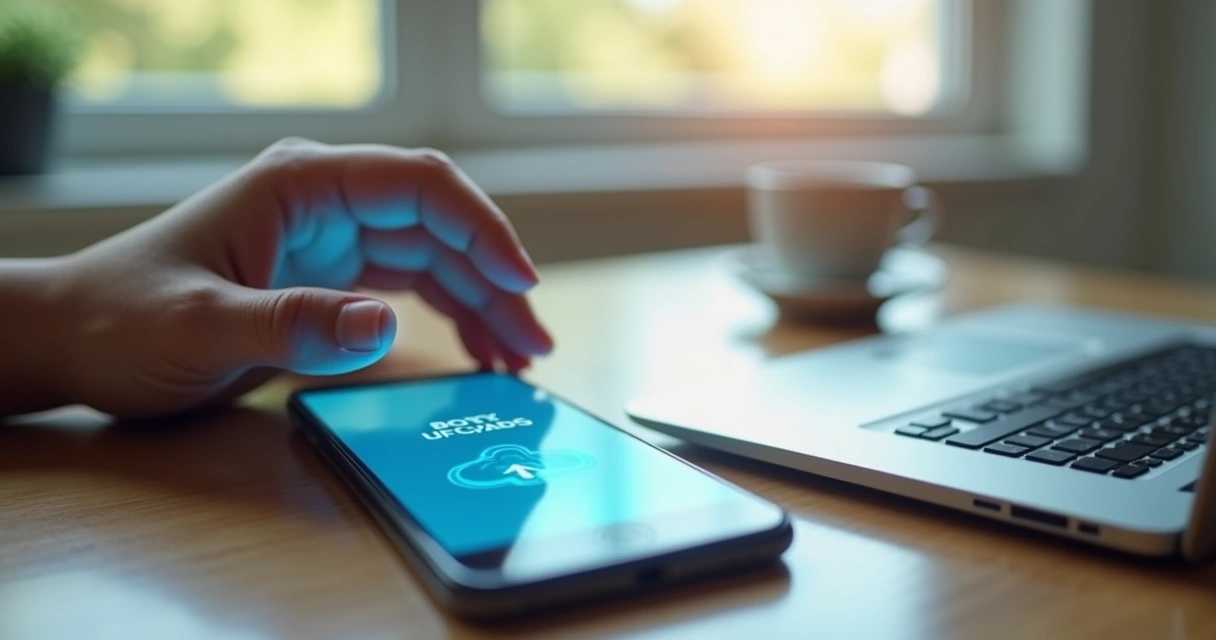Advertisement
There’s a certain feeling I get when I leave my phone unattended in a public place, even for a moment. It’s a small shock of worry, much bigger than I remember when I used to leave my old brick phone lying around. Over the years, I’ve realized that smartphones are far more than just gadgets for calls or browsing, they’re tiny lifelines filled with personal data, photos, financial apps, and memories.
But here’s the truth: a lot of people, myself included at times, make simple, almost invisible mistakes that put their smartphones at risk. If you’re curious about what those are, or if you’re wondering if you’re making any of them without even thinking, let me walk you through some of the most common pitfalls I’ve seen, or, let’s be honest, fallen into myself.
Not using a screen lock
Sometimes I meet friends who just swipe to open their phone, no PIN, no pattern, nothing. It surprises me every time.
Advertisement
Even a basic screen lock can stop strangers from instantly accessing your personal information. That means banking apps, emails, and messages remain a layer away from prying eyes.
Without a screen lock, your phone is like an open door.
Face recognition, fingerprint, PIN, pattern, pick the one that feels safest to you. It’s quick to set up. Trust me, the small hassle is worth the peace of mind.
Leaving your phone’s operating system outdated
I get it, installing updates feels like waiting forever sometimes, especially if you’re in a hurry. I’ve been guilty of skipping updates, telling myself I’ll do it “later.” That can be risky.
Operating system updates often include security patches that block new threats. If you keep using the old version, you’re letting hackers exploit holes that are already publicly known.
Once I finally formed the habit of updating my phone regularly, I felt oddly more relieved, knowing I was at least protected from the latest known threats.
Downloading apps from unofficial sources
Sometimes an app looks interesting, but you can’t find it on your phone’s main app store. The temptation is real. But I’ve learned, sometimes painfully, that downloading from random sites can install malware or steal data without you noticing.
Stick to trusted app stores for downloads, even if it means missing out on that one trending app. Those extra vetting steps actually work behind the scenes, and your information stays much safer.
Ignoring app permissions
I remember once downloading a flashlight app that asked for access to my contacts and microphone. Strange, right? It turns out, many apps want more than they actually need.
Check what permissions you’re granting. Ask yourself: does this simple game need my location or access to my camera? Probably not.
Review app permissions before you hit “Accept.”
I now regularly go into my settings just to see which apps have permission to do what. It’s a quick check for a huge benefit.

Using weak or repeated passwords
Using “123456,” “password,” or your birthday is an invitation to cybercriminals. I used to reuse passwords for everything, thinking it wouldn’t matter. But if one account is compromised, all others using that password are open targets.
Try creating unique passwords for every service, longer, with numbers, symbols, and capital letters mixed in. I know remembering them all sounds tough. Password managers really help with this. I started with writing them in a notebook, but eventually switched to a digital manager for ease.
Leaving Bluetooth and Wi-Fi always on
Leaving Wi-Fi and Bluetooth always on makes connecting to networks fast, but it can also let your device be found unexpectedly. In crowded places, I’ve seen unknown devices popping up in my available connections, which made me quite uneasy.
Turn off Bluetooth and Wi-Fi when you’re not using them. It’s a tiny step, but it stops unwanted connections and potentially harmful interactions with other devices lurking nearby.
Disabling unused connections closes invisible doors to your phone.
Using public Wi-Fi without protection
Coffee shops and airports offer free Wi-Fi, and I’ve used them plenty of times. But these open networks are easy for attackers to scan or intercept data.
If you must use public Wi-Fi, don’t access sensitive info, like banking apps or private work emails. For extra safety, some choose to use additional security tools, but at the very least be aware that open Wi-Fi is just that, open.
Not backing up your data
There’s no sinking feeling quite like realizing your phone is lost or dead, and your photos, messages, and files are gone. I’ve seen friends go through it, and once, nearly lost years of memories myself.
Backups let you recover information if your device is stolen, broken, or hacked. Automate your backup, whether to the cloud or a computer. The first time you need it and actually restore your data, you’ll be so grateful.

Not enabling “find my device” features
Years ago, I lost a phone in a taxi. I hadn’t enabled any tracking tools, and that device simply vanished from my life.
Now, I make sure every new phone I get has location-tracking and remote wipe features turned on right away.
This simple step can help you recover or erase your data if your phone disappears.
Take a minute to check your device settings. Having this extra option ready can make a big difference in a pinch.
Forgetting to log out on shared devices
If you ever sign into social media, email, or online accounts on someone else’s phone or a shared device, always log out. I once left my email open on a friend’s tablet and realized days later. Luckily, it was a trusted friend. If it hadn’t been, things could have been much worse.
Always double-check before you hand back any device, your accounts might still be open in a browser or an app. Logging out is simple, but it’s an easy step to forget.
Conclusion
After years of tinkering with smartphones and seeing how friends, relatives, and even tech-savvy people make security mistakes, I’m convinced that most risks are really just habits, habits we can change. If I look at my own journey, I see missed patches, lazy password choices, or a moment’s trust in the wrong app source. I’ve learned, sometimes through mistakes, that even little changes in behavior can keep my phone and my personal world a lot safer. Maybe they can do the same for you, too.
Frequently asked questions
What is mobile security for smartphones?
Mobile security for smartphones means protecting your device and its data from threats like malware, unauthorized access, and cyberattacks. This involves using secure passwords, keeping your software updated, and being cautious about apps and networks you use.
How can I protect my phone data?
In my experience, protecting phone data starts with these actions:
- Enable a screen lock (PIN, fingerprint, or face recognition).
- Use strong, unique passwords and consider a password manager.
- Back up your data to a cloud or computer regularly.
- Install updates promptly.
- Limit app permissions and avoid unknown sources.
Simple habits like these can greatly reduce the risk of losing your data or having it stolen.
What are the most common security mistakes?
Here are some of the mistakes I see most often:
- Not setting up a screen lock
- Ignoring software updates
- Downloading apps from unofficial sites
- Using weak or the same passwords across accounts
- Leaving Bluetooth or Wi-Fi on when not in use
- Accessing sensitive data over public Wi-Fi
- Skipping regular backups
- Forgetting to log out of shared devices
Avoiding these mistakes goes a long way to keeping your phone safe.
Is public Wi-Fi safe for my phone?
I wouldn’t call public Wi-Fi safe, especially if you’re sending private or sensitive information. On open networks, other people nearby can intercept your data more easily. For casual browsing, the risk is less, but I avoid logging into important accounts or accessing bank details unless I’m on a secure connection.
How often should I update my smartphone?
It’s best to install updates as soon as they’re available. Updates regularly fix security holes and vulnerabilities, so waiting leaves your device exposed. If you tend to forget, you can set your phone to update automatically.